-
Crime and Punishment
Fyodor Dostoevsky
eBook (Fyodor Dostoevsky, April 25, 2017)Crime And Punishment, a classic of Fyodor Dostoevsky, tells the story of Raskolnikov, a former wretched and desperate ex-student who wandered through the slums of St. Petersburg and commits casual murder without remorse or regret. Imagine being a great man, a Napoleon: acting for a purpose beyond the conventional moral law. But when he takes a dangerous cat and mouse game with a suspect police detective, Raskolnikov is pursued by the growing voice of his conscience and finds the loop of his guilt that is clinging around his neck. Only Sonya, a stubborn prostitute, can offer a ransom.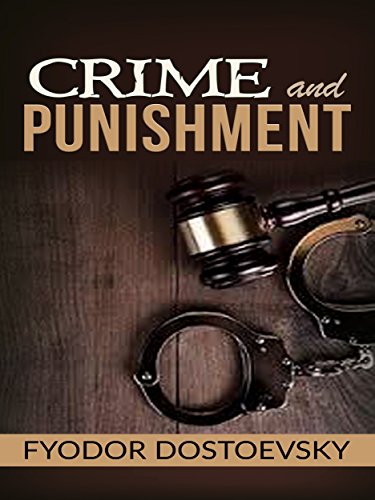
-
Crime and Punishment
Fyodor Dostoyevsky
eBook (AmazonClassics, )None
-
CRIME AND PUNISHMENT
FYODOR DOSTOEVSKY
eBook (Ale.Mar., April 22, 2020)Crime And Punishment, a classic of Fyodor Dostoevsky, tells the story of Raskolnikov, a former wretched and desperate ex-student who wandered through the slums of St. Petersburg and commits casual murder without remorse or regret. Imagine being a great man, a Napoleon: acting for a purpose beyond the conventional moral law. But when he takes a dangerous cat and mouse game with a suspect police detective, Raskolnikov is pursued by the growing voice of his conscience and finds the loop of his guilt that is clinging around his neck. Only Sonya, a stubborn prostitute, can offer a ransom.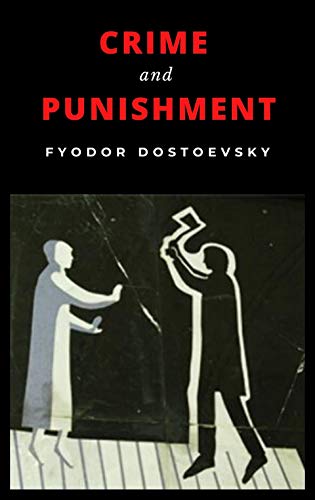
-
Crime and Punishment: By Fyodor Dostoyevsky - Illustrated
Fyodor Dostoyevsky
eBook (Kathartika, Dec. 18, 2016)How is this book unique?Unabridged (100% Original content)Formatted for e-readerFont adjustments & biography includedIllustratedAbout Crime and Punishment by Fyodor Dostoyevsky Crime and Punishment (Russian: Преступлéние и наказáние, tr. Prestupleniye i nakazaniye; IPA: [prʲɪstʊˈplʲenʲɪɪ ɪ nəkɐˈzanʲɪɪ]) is a novel by the Russian author Fyodor Dostoyevsky. It was first published in the literary journal The Russian Messenger in twelve monthly installments during 1866. It was later published in a single volume. It is the second of Dostoyevsky's full-length novels following his return from 10 years of exile in Siberia. Crime and Punishment is considered the first great novel of his "mature" period of writing. Crime and Punishment focuses on the mental anguish and moral dilemmas of Rodion Raskolnikov, an impoverished ex-student in St. Petersburg who formulates and executes a plan to kill an unscrupulous pawnbroker for her cash. Raskolnikov, in attempts to defend his actions, argues that with the pawnbroker's money he can perform good deeds to counterbalance the crime, while ridding the world of a vermin. He also commits the murder to test a theory of his that dictates some people are naturally capable of such actions, and even have the right to perform them. Several times throughout the novel, Raskolnikov compares himself with Napoleon Bonaparte and shares his belief that murder is permissible in pursuit of a higher purpose.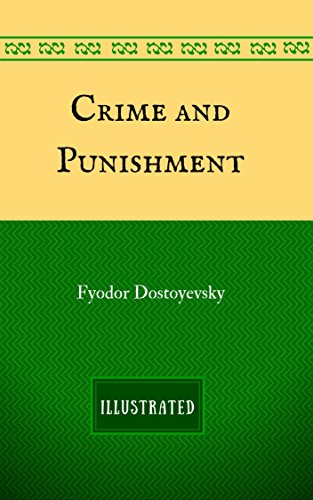
-
Crime and Punishment
Fyodor Dostoyevsky
eBook (Kathartika, July 29, 2020)Through the story of the brilliant but conflicted young Raskolnikov and the murder he commits, Fyodor Dostoyevsky explores the theme of redemption through suffering. “Crime and Punishment” put Dostoyevsky at the forefront of Russian writers when it appeared in 1866 and is now one of the most famous and influential novels in world literature.The poverty-stricken Raskolnikov, a talented student, devises a theory about extraordinary men being above the law, since in their brilliance they think “new thoughts” and so contribute to society. He then sets out to prove his theory by murdering a vile, cynical old pawnbroker and her sister. The act brings Raskolnikov into contact with his own buried conscience and with two characters — the deeply religious Sonia, who has endured great suffering, and Porfiry, the intelligent and discerning official who is charged with investigating the murder — both of whom compel Raskolnikov to feel the split in his nature. Dostoyevsky provides readers with a suspenseful, penetrating psychological analysis that goes beyond the crime — which in the course of the novel demands drastic punishment — to reveal something about the human condition: The more we intellectualize, the more imprisoned we become.
-
Poor Folk
Fyodor Dostoevsky
eBook (Fyodor Dostoevsky, April 19, 2017)Poor people is the first novel by Fyodor Dostoyevsky, written over a period of nine months between 1844 and 1845 and is written in the form of letters between the two protagonists, Makar Devushkin and Varvara Dobroselova, who are poor second cousins. The novel showcases the lives of poor people, their relationship with wealthy people, and poverty in general.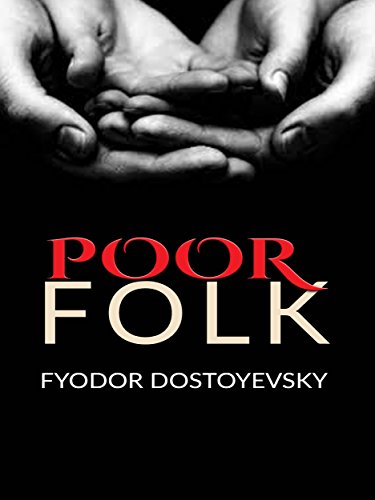
-
Poor Folk
Fyodor Dostoevsky
eBook (Fyodor Dostoevsky, April 19, 2017)Poor people is the first novel by Fyodor Dostoyevsky, written over a period of nine months between 1844 and 1845 and is written in the form of letters between the two protagonists, Makar Devushkin and Varvara Dobroselova, who are poor second cousins. The novel showcases the lives of poor people, their relationship with wealthy people, and poverty in general.
-
Poor Folk
Fyodor Dostoevsky
eBook (Fyodor Dostoevsky, April 19, 2017)Poor people is the first novel by Fyodor Dostoyevsky, written over a period of nine months between 1844 and 1845 and is written in the form of letters between the two protagonists, Makar Devushkin and Varvara Dobroselova, who are poor second cousins. The novel showcases the lives of poor people, their relationship with wealthy people, and poverty in general.
-
Poor Folk
Fyodor Dostoevsky
eBook (Fyodor Dostoevsky, April 19, 2017)Poor people is the first novel by Fyodor Dostoyevsky, written over a period of nine months between 1844 and 1845 and is written in the form of letters between the two protagonists, Makar Devushkin and Varvara Dobroselova, who are poor second cousins. The novel showcases the lives of poor people, their relationship with wealthy people, and poverty in general.
-
Poor Folk: By Fyodor Dostoevsky - Illustrated
Fyodor Dostoevsky
eBook (Fyodor Dostoevsky, April 13, 2017)How is this book unique?Font adjustments & biography includedUnabridged (100% Original content)IllustratedAbout Poor Folk by Fyodor DostoevskyWith their penetrating psychological insight and their emphasis on human dignity, respect and forgiveness, Dostoyevsky's early short stories contain the seeds of the themes that came to his major novels. Poor Folk, the author's first great literary triumph, is the story of a tragic relationship between an impoverished copy clerk and a young seamstress, told through their passionate letters to each other. In The Landlady Dostoyevsky portrays a dreamer hero who is captivated by a curious couple and becomes their lodger. Mr Prokharchin, inspired by a true story, is a sly comedy centring on an eccentric miser, and Polzunkov is a powerful character sketch which, in common with the other tales in this volume, questions the very nature of existence. Lauded as "socially responsible literature" by critics all over the world, "Poor Folk" quickly became a landmark book for its portrayal of the human plight. Through a series of letters exchanged between the characters, "Poor Folk" provides a profound account of the lives of low-income Russians during the mid-nineteenth century.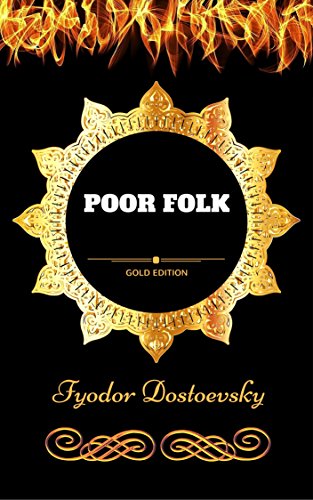
-
Poor Folk
Fyodor Dostoevsky
eBook (Fyodor Dostoevsky, April 19, 2017)Poor people is the first novel by Fyodor Dostoyevsky, written over a period of nine months between 1844 and 1845 and is written in the form of letters between the two protagonists, Makar Devushkin and Varvara Dobroselova, who are poor second cousins. The novel showcases the lives of poor people, their relationship with wealthy people, and poverty in general.
-
Poor Folk
Fyodor Dostoevsky
eBook (Fyodor Dostoevsky, April 19, 2017)Poor people is the first novel by Fyodor Dostoyevsky, written over a period of nine months between 1844 and 1845 and is written in the form of letters between the two protagonists, Makar Devushkin and Varvara Dobroselova, who are poor second cousins. The novel showcases the lives of poor people, their relationship with wealthy people, and poverty in general.